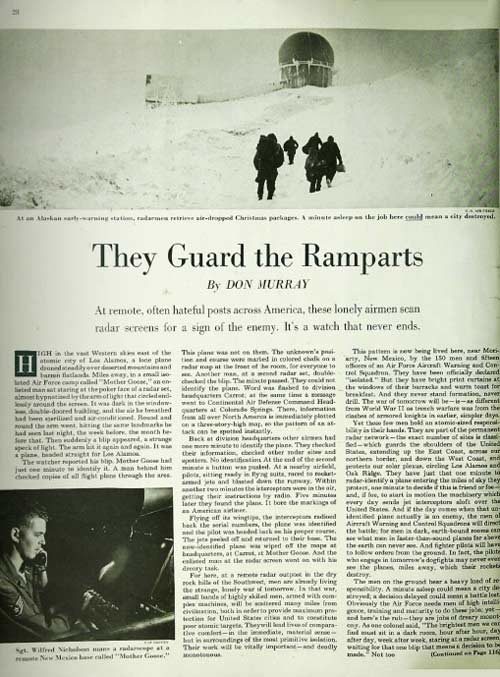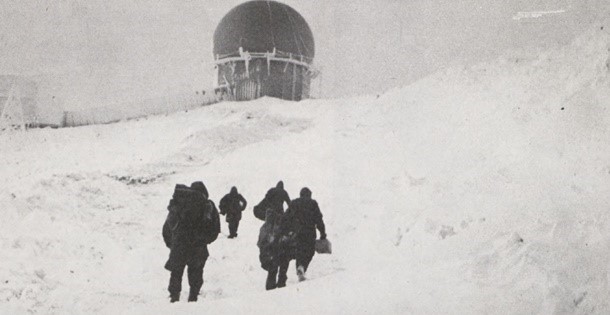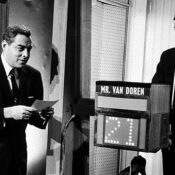We all have bad days at work: you lose your biggest client, your program is buggy, your boss raked you over the coals. Regardless of how bad your day was, it’s likely it didn’t result in an entire state living in terror for 40 minutes. This was the fate of one luckless emergency management employee in Hawaii who clicked on the wrong item on a dropdown menu. That led to a false alert of an incoming ballistic missile being sent out to everyone in the state. The employee has since been reassigned pending an investigation.
If anyone can empathize with high price of such mistakes, it’s the military personnel responsible for monitoring incoming nuclear threats. At the height of the cold war, the Post profiled the work of such men in the June 11, 1955, article “They Guard the Ramparts” by Don Murray. He points out the predicament of such work: that it’s “vitally important—and deadly monotonous.”

The men who worked for the Air Force’s Aircraft Warning and Control were responsible for staring for hours at a radar screen, waiting to catch an unexpected blip. Their secret locations were tucked into remote spots — in the Rockies, atop a Tennessee mountain, and even a Midwest millionaire’s resort — anywhere a first nuclear strike was unlikely to hit.
Despite every attempt to make these isolated locations homey with cheerful curtains, excellent food, and pinball machines, the work was dreary and tedious: almost no one re-enlisted. The Air Force faced the problem of needing thoughtful, imaginative, intelligent workers to do work that was deadly dull 99% of the time. And they realized the gravity of such a dilemma: “The men on the ground bear a heavy load of responsibility. A minute asleep could mean a city destroyed; a decision delayed could mean a battle lost.”

Become a Saturday Evening Post member and enjoy unlimited access. Subscribe now



